|
Supermarine Spitfire IXc
by Wojciech Perkowski
|
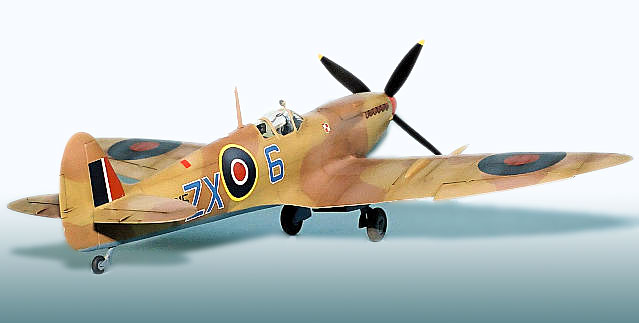
|
|
Supermarine Spitfire
Mk.IXc |

ICM's 1/48
scale Spitfire IXc is available online from
Squadron
ICM's Spitfire IX is the most accurate 1/48 scale model kit of this
much admired WWII fighter, but as we all know it needs some improvements.
Here is my example with resin parts by my fellow modeller Konrad Kondrat
rubyconn@wp.pl.
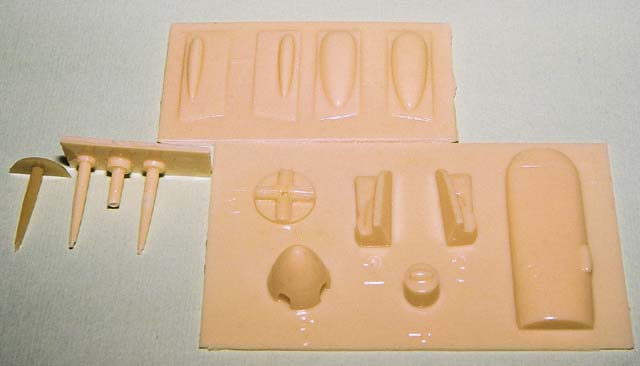
Construction, as usual, starts in the cockpit.
Although it looks more like the Mk V interior, I only reshaped the
stick, sit, and added Part photo etched harnesses, as it was planned to be
closed.
Pactra British Interior Green was used to paint this area (acrylic).
The fuselage halves were glued together, and front corners of
wing/fuselage fairing were removed from both sides according to panel
lines, to make place for resin inserts with these asymmetric small
blisters and gun camera panel omitted by ICM. Floor with instrument panel
could be inserted after that. I didnít install engine and firewall.
Wings were next. Prior to joining upper and lower parts, resin cannon
bay covers were installed (the easiest way to remove them from thick base
is to make a crack with razor saw along edges and then brake the parts
like piece of chocolate). Then small oval bays were created in upper wing
halves where they meet resin inserts near fuselage. After that lower and
upper wing parts were glued together.
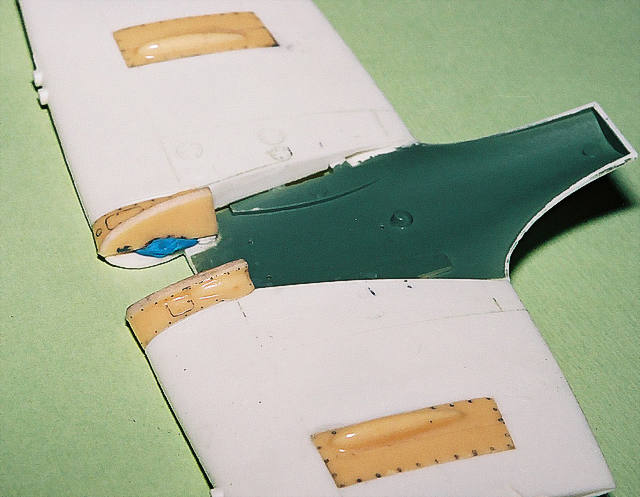
Resin inserts were joined temporary to wing with Blue Tack and dry fitted
with the fuselage (I decided to remove small fragments of engine side
covers from resin inserts). When I was satisfied with the fit, superglue
was placed here from inside of fuselage (engine upper cowling wasnít
installed yet), and no sanding was required here. Minor filing was
required on wing leading edge here.
The upper engine cowling was removed from the resin base and the inside
was drilled several times to make sanding itís undersurface easier. While
sanding, I dryfitted it with fuselage (rear height) and the ICM engine
upper cowling (front height). About 0,5 mm thickness plastic plate was
glued to the rear, as it was slightly shorter than should be. Effort was
rewarded with much more accurate shape of the cowling than ICM part.
The small air intake above right side exhausts on engine cowling was
sanded more flat. I didnít use smaller resin intake on left side engine
cover and copied (plastic molten with temperature method) the one from
Tamiya Spitfire V instead (ICM one looks slightly anorectic to me).
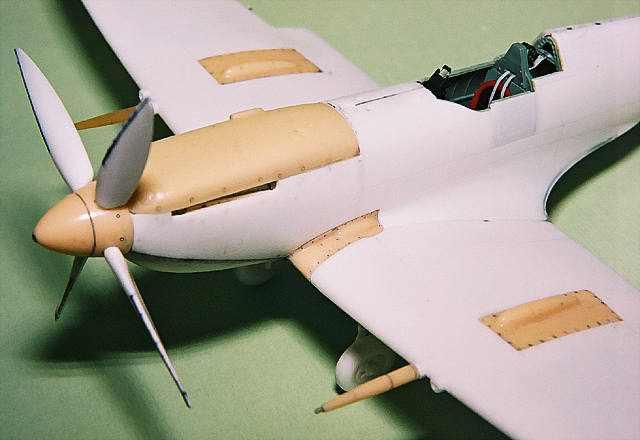
Front exhaust slots edges on engine side covers were moved towards spinner
as they begin too far from it (they should begin with panel line on resin
upper engine cowling). Undercarriage legs were reduced in length (about 2
mm if I recall correctly), propeller blades slightly modified and engine
air intake completely reshaped. The only sinkmarks to be filed were
located near ailerons on upper wing and right fuselage half near cockpit.
The rest of construction went without troubles.
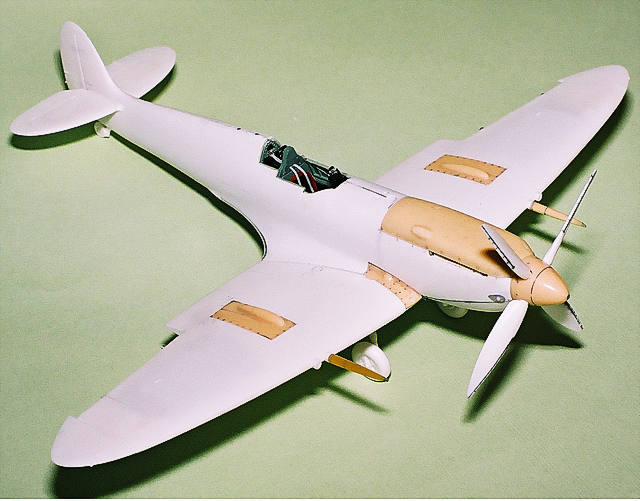
I added some details here and there. ZX6 was equipped with non standard
flat outer (not installed) cannon barrels caps and flat wheel hub covers.
I wanted to depict an early Spitfire IXc, ZXO6 EN315 from Polish
Fighting Team (Skalskiís Circus) of 145 Sqn North Africa 1943.
First, the undersurfaces were preshaded in black and the model was
camouflaged with Humbrol 157 Azure Blue (I added about 30% white here), 84
Mid Stone, and 5029 (acrylic) Dark Earth. Al. surfaces were coated with
gloss varnish and model was ready for decaling.
The kit decals did not look too good, so the excellent Techmod ones
were substituted. One more layer of acrylic gloss varnish and panel lines
were accentuated with oil wash.
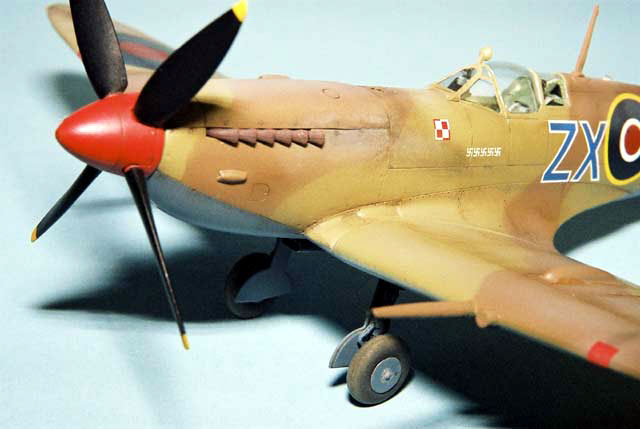
Pactra Clear Matt was sprayed with a small amount of white on the upper
surfaces to add a faded look.
Finally, masks were removed from canopy, and small details glued and
painted.
I like the Spitfire very much, and want to make more of them.
This kit was easier to build than my first ICM Spit IX/XVI which
suffered from more sinkmarks. Unfortunately I made probably no less than
two errors this time Ė more possibly EN315 was equipped with wide (two
cannons type) cannon blisters, and it looks like there should be no
scissors on early Spitfire IX undercarriage legs.
Maybe Iíll fix these someday if I will know for sure.
-
Supermarine Spitfire , Monografie Lotnicze
38, 39, 40, 41, AJ-Press
-
Supermarine Spitfire IX/XVI, Modelmania 5,
AJ-Press
-
Various internet sites.
Click the
thumbnails below to view larger images:
Model, Images and Text Copyright © 2003
by Wojciech Perkowski
Page Created 16 February, 2003
Last Updated
17 March, 2004
Back to
HyperScale Main Page |
Home |
What's New |
Features |
Gallery |
Reviews |
Reference |
Forum |
Search